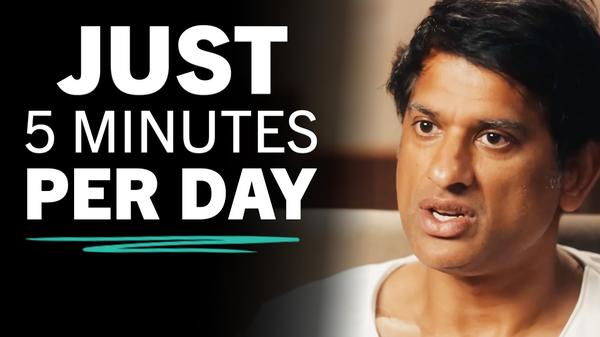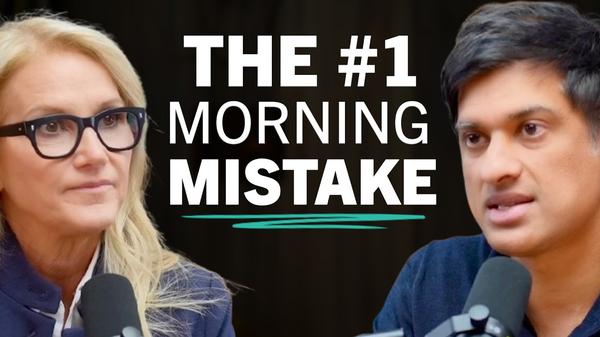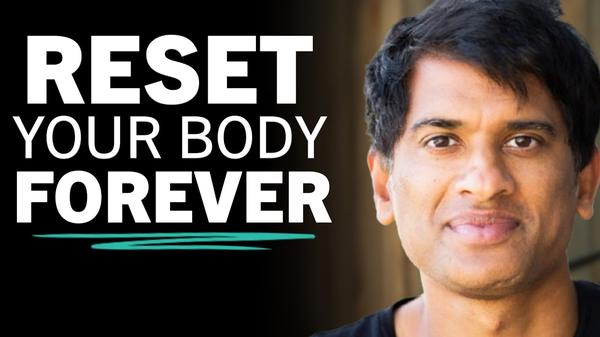
Harvard Neuroscientist: "If You Sit Like THIS, Watch Out! – It Destroys Your Body" | Dan Lieberman
Rangan Chatterjee
Sep 22, 2025
Mindsip insights from this episode:
Overcome instinct to avoid exercise for better health
We have a deep-seated, universal instinct to avoid unnecessary physical activity because, for millions of years, conserving energy was critical for survival and reproduction.
Implement commitment contracts to ensure regular exercise
Instead of relying on willpower, use 'commitment contracts' like scheduling workouts with a friend or using services that create financial consequences to make exercise necessary.
Manage energy availability to combat cancer growth
Cancer can be viewed as a disease of high energy, where excess energy availability from inactivity and diet turns on growth pathways that fuel cancer cell proliferation.
Incorporate active sitting habits inspired by hunter-gatherers
The Hadza hunter-gatherers sit for about 10 hours a day, but they do so intermittently and in active positions like squatting, which is metabolically different from our prolonged, passive sitting in ergonomic chairs.
Incorporate cardio to enhance strength training benefits
Focusing only on strength training without cardio can be as bad for cardiovascular health as being sedentary, as the heart needs the 'volume challenge' of cardio, not just the 'pressure challenge' of weights.
Reduce menstrual cycles to lower cancer risk
Modern women have around 400 menstrual cycles in their lifetime compared to about 150 in natural fertility populations, resulting in many more pulses of estrogen and progesterone that increase the risk of certain cancers.
Reject paleo fantasy for modern health practices
We should avoid the 'paleo fantasy,' which is the flawed idea that everything hunter-gatherers did is a prescription for modern life, as they also didn't use vaccines or brush their teeth.
Rethink 10,000 steps as a guideline, not a rule
The 10,000-steps-a-day recommendation originated from a 1960s Japanese marketing campaign for a pedometer, not from scientific evidence, although it turns out to be a decent guideline.
More from
Rangan Chatterjee
Neuroscientist: If You’re Feeling THIS, You’ve Lost Touch With Your True Self
Neuroscientist: If You Feel THIS, You're Living the Wrong Life (Unlock The One You're Meant For)
The 5-Minute Morning Habit That Transformed My Health, Happiness & Marriage
If You Struggle to Sleep, Start Doing THIS Every Morning
The Only 3 Rules You Need to End Cravings & Reset Your Body
You also might be interested in
Dr. Casey Means: Eat like THIS to reduce your Risk of Metabolic Disease!
Biohacking Fertility for Men and Women at Any Age
Improve Energy & Longevity by Optimizing Mitochondria | Dr. Martin Picard
Dr. Casey Means: Stop Ignoring Your Health — Do These 5 Free Tests!
The Untold Science Of Vibration Therapy & The “BioDrive” Breakthrough That Regulates Your Mind and Body, With Dr. Mike North














